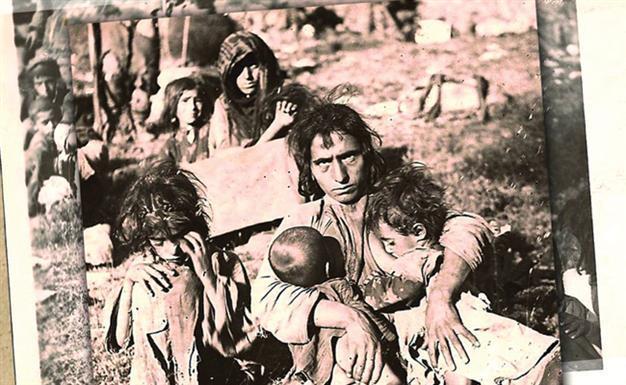Sequel to film on Dersim on the way
ISTANBUL - Hürriyet Daily News

The sequel of the documentary on Dersim will include the accounts of the families of the troops who took them away.
A couple who produced the documentary “Two Strands of Hair: The Lost Girls of Dersim” is preparing to shoot a sequel to the film, which chronicled victims’ accounts of the bloody Dersim operation of 1938.“When we were shooting the first documentary, we thought the subject matter would spur debate, but it had not occurred to us even remotely that a taboo would be shattered in such a way, and that even the prime minister of the Turkish Republic would define the events as a ‘massacre,’” the documentary’s researcher and scriptwriter, Kazım Gündoğan, recently told the Hürriyet Daily News.
Whereas the first documentary featured the testimonies of female children who were forcibly taken away from their families, the sequel, in turn, will include the accounts of the families of the troops who took them away. Documentary filmmakers Kazım and Nezahat Gündoğan will also investigate the parallels between the massacre in Dersim – which is now the eastern province of Tunceli – and the forced deportation of Armenians in 1915.
“Soldiers’ children who said their fathers and grandfathers had brought female children from Dersim called us after the first documentary. They opened up their archives and related the [incidents] they witnessed. The personal archives and notes of troops and civil servants who participated in that process bear great significance,” Kazım Gündoğan said.
The families in question gave their archives away to old book collectors to unload their burden in connection with the bloody military operation that was launched against Alevi clans in Dersim, he said.
“The archives of Turkey’s black boxes are now [lying] in old book collector shops.”
Kazım Gündoğan also added they had received much criticism from historians.
“We believe in the power of human stories. ... They ask us which documents [illustrate] that the events in Dersim constituted not a rebellion but a massacre, and we present to them the testimonies of the people who experienced all the pain first hand. Which one [represents] the truth of history? The report prepared by the troops who personally participated in the massacre, or the eyewitnesses?” he said.
















